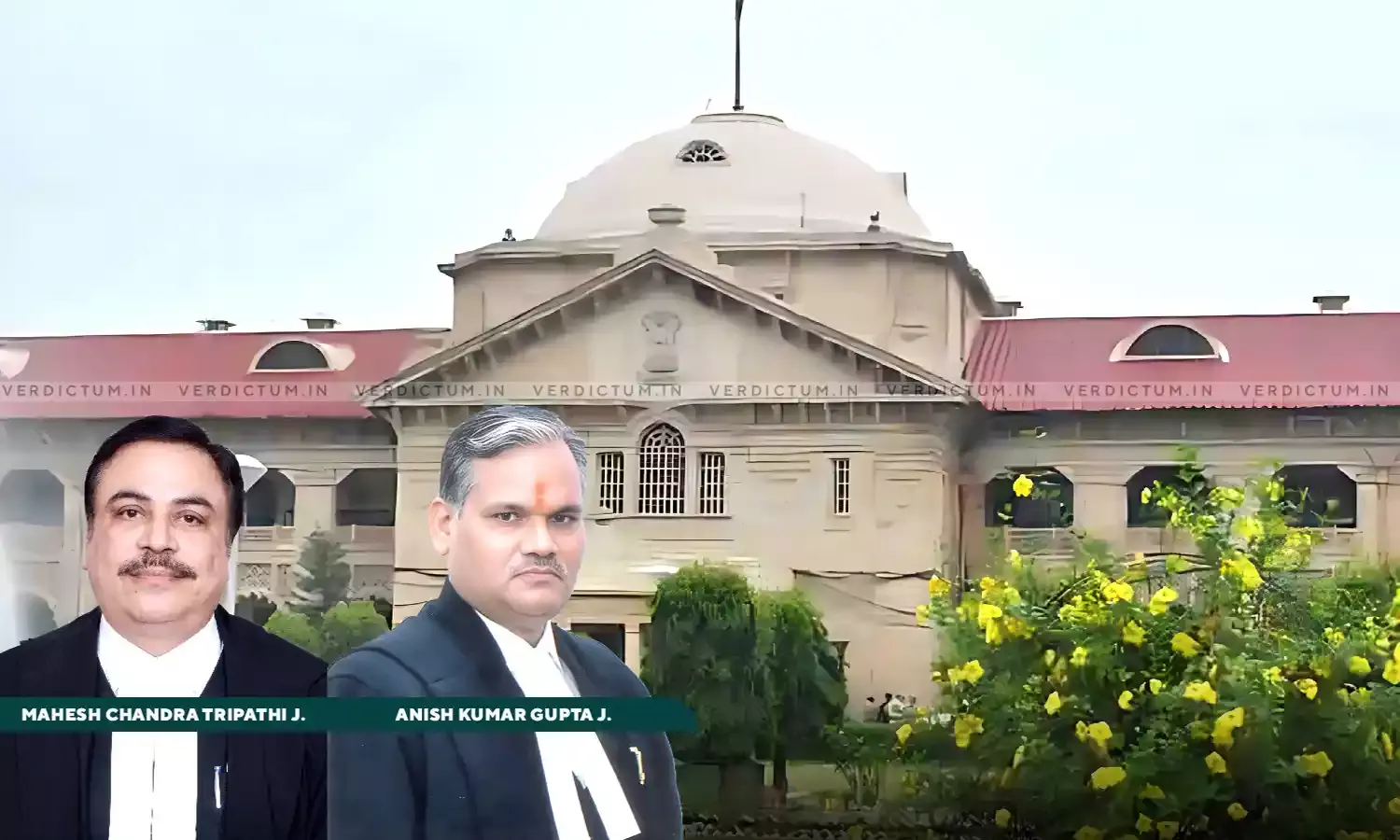Appointment Under Compassionate Scheme Is Not Meant To Be An Alternate Source Of Recruitment: Allahabad High Court

The Allahabad High Court observed that an appointment under the Compassionate Scheme is not meant to be an alternate source of recruitment.
The Court observed thus in a special appeal challenging the legality and validity of the judgment of the Single Judge by which it accorded last opportunity to a woman (widow) to clear the physical efficiency test within 30 days.
A Division Bench of Justice Mahesh Chandra Tripathi and Justice Anish Kumar Gupta held, “… this Court deems it fit to observe that the appointment under the compassionate scheme is not meant to be an alternate source of recruitment. It is essentially to reach immediate succor to a bereaved family. In other words, the sudden passing away of a government servant creates a financial vacuum and it is to lend a helping hand to the genuinely needed members of the bereaved family that an appointment is provided. It is never meant to be a source of conferring any status or an alternate mode of recruitment.”
The Bench said that the Single Judge committed an error in law in following the ratio of an order, passed by another Bench of same strength which itself contained that the order shall not be treated as 'precedent'.
Standing Counsel Fuzail Ahmad Ansari appeared for the appellants while Advocate Atipriya Gautam appeared for the respondent.
Factual Background -
The husband of the respondent died in harness while working as Head Constable in Civil Police in the year 2021. Thereafter, on account of unfortunate demise of her husband, she applied for compassionate appointment and her application was entertained by the police department for the post of Sub-Inspector and she was asked to undergo the physical efficiency test. However, the respondent could not complete the running within the stipulated time as fixed by the Police department.
Consequently, the respondent approached the High Court to consider her claim qua the compassionate appointment under the Uttar Pradesh Recruitment of Dependents of Government Servants Dying in Harness Rules, 1974 for the post of Sub-Inspector as per her qualification. The Single Judge taking sympathetic view, accorded a last opportunity to her to clear the physical efficiency test and entitled her for a suitable appointment on compassionate basis in case she failed to qualify in the physical efficiency test. Being aggrieved, the State was before the Division Bench.
The High Court in the above regard noted, “The origin of the term 'precedent' is from a Latin term called 'stare decisis' which became the doctrine of legal precedent. The term 'stare decisis' refer to courts looking at similar or historical case as a guide to take a judgement in future, it means to stand by the decided cases. This doctrine is mentioned in the Article 141 of the Constitution. It is used in all courts and in all legal issues. The doctrine of precedent is expressly incorporated in India by Article 141 of the Constitution of India, 1950. Article 141 provides that the decisions of the Supreme Court are binding on all courts within the territory of India. Although there is no express provision, but by convention the decisions of a High Court are binding on all lower courts within the territorial jurisdiction of that High Court. Similarly, a decision of a higher Bench, is binding on the lower Bench.”
The Court said that with the evolution of law, the concept of precedent gained new dimensions and it came to be classified as 'binding precedents', 'persuasive precedent', 'original precedent' and 'declaratory precedent'. It further noted that the binding precedents are also known as authoritative precedents and such precedents are bound to be followed by a lower court or other equivalent courts once a judgment is made, whether they approve it or not.
“Persuasive precedents include decisions taken by an inferior court that a higher court or any other court is not obliged to follow. It depends on the court to decide whether to consider it or not. An original precedent are those judgements where the court has never taken a decision in a case and it has to use its own discretion to reach to a conclusion. A declaratory precedent is application of existing precedent in a particular case. A declaratory precedent involves declaring an existing law and putting into practice, hence it does not help in creating new law”, it added.
The Court observed that the respondent was not liable to be offered the post of Sub Inspector and moreover, once having failed the physical efficiency test, no second chance for qualifying the same could have been offered to a candidate claiming compassionate appointment.
“In view of the above, it is provided that as the respondent-petitioner has failed to qualify in the physical examination for the post of Sub-Inspector, it will remain open for her to apply afresh seeking compassionate appointment on any other suitable post in the Department, which may be offered to her as per her eligibility and suitability. It is also provided that in the event the respondent-petitioner makes any such application within four weeks from today, the same shall be considered and disposed of in view of the observations made hereinabove as well as taking into account the Government Order dated 18.09.2015 within next three weeks. If the petitioner is considered entitled for any other post by the department, the same shall be offered to her within a period of 30 days' from the date of decision to be taken by the authority”, it concluded.
Accordingly, the High Court disposed of the special appeal and set aside the impugned order.
Cause Title- The State of UP and 5 Others v. Geeta Rani (Neutral Citation: 2024:AHC:87984-DB)
Appearance:
Appellants: Standing Counsel Fuzail Ahmad Ansari and Advocate Kunal Ravi Singh.
Respondent: Advocates Atipriya Gautam and Devesh Mishra.


